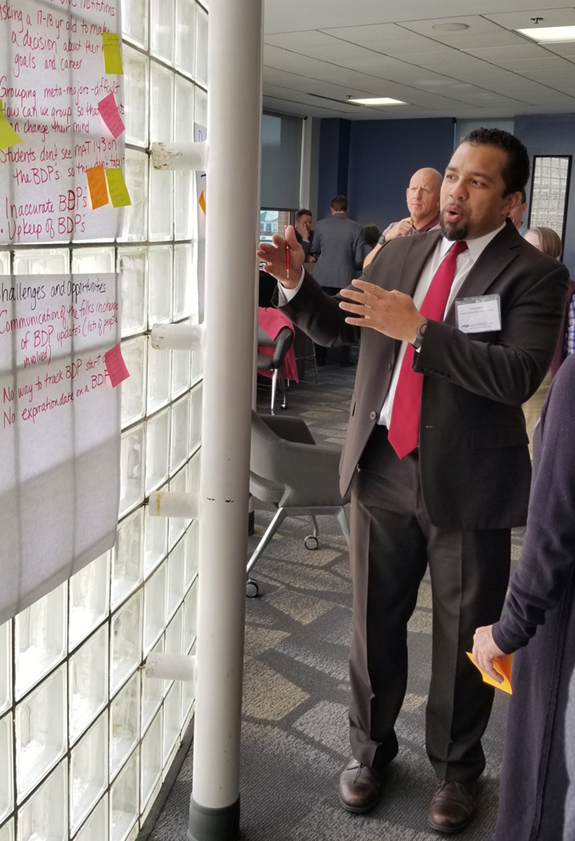| Jo-Ann Cohen |
Math Professor |
North Carolina State University |
|
| Elizabeth Creath |
Math Faculty |
University of North Carolina at Wilmington |
Summit |
| Alina Duca |
Assoc. Professor of Math |
North Carolina State University |
|
| Peter Eley |
Interim Chair and Professor, Math Education |
Fayetteville State University |
|
| Katie Floyd |
Math Faculty |
University of North Carolina at Pembroke |
|
| Richard Gay |
Associate Dean |
University of North Carolina at Pembroke |
|
| Taylor Gibson |
Math Dean |
North Carolina School of Science and Mathematics |
|
| Mark Ginn |
Vice Provost |
Appalachian State University |
Defining the Problem |
| Linda Green |
Assoc. Professor of Math |
University of North Carolina at Chapel Hill |
|
| Johannes Hattingh |
Math Chair |
East Carolina University |
|
| Ellen Hilgoe |
Assoc. Director NC EMPT |
East Carolina University |
|
| Frank Ingram |
Assoc. Dean |
Winston Salem State University |
|
| Kenneth L. Jones |
Math Chair |
Elizabeth City State University |
|
| Mohammad Kazemi |
Assoc. Math Chair |
University of North Carolina at Charlotte |
|
| Jeff Lawson |
Professor and Math Department Head |
Western Carolina University |
|
| Eric Marland |
Professor and Math Department Chair |
Appalachian State University |
|
| Katie Mawhinney |
Math Faculty |
Appalachian State University |
K-14 |
| Valentin Milanov |
Associate Professor |
Fayetteville State University |
|
| Radoslav Nickolav |
Math Chair |
Fayetteville State University |
Advising |
| Viji Sathy |
Assoc. Professor of Psychology |
AUniversity of North Carolina at Chapel Hill |
%nbsp; |
| Dipendra Sengupta |
Math Professor |
Elizabeth City State University |
|
| John Smail |
Associate Provost |
University of North Carolina at Charlotte |
|
| James Smiling |
Math Faculty |
University of North Carolina at Pembroke |
|
| April Talbert |
Instructor and Director |
East Carolina University |
|
| Guoqing Tang |
Math Chair |
North Carolina A&T State University |
|
| Dan Teague |
Math Faculty |
North Carolina School of Science and Mathematics |
|
| Matt TenHuisen |
Prof/Assoc. Director CTE |
University of North Carolina at Wilmington |
|
| Richard Townsend |
Math Faculty, Gen Ed Chair |
North Carolina Center University |
|
| Dong Wang |
Math Professor |
Fayetteville State University |
|
| Coral Wayland |
Assoc. Dean |
University of North Carolina at Charlotte |
|
| Tracy Foote White |
Asst. Math Professor |
Winston Salem State University |
Design |
| Cathy Whitlock |
Math Faculty |
University of North Carolina at Asheville |
|
| Dan Yasaki |
Assoc. Math Professor |
University of North Carolina at Greensboro |
Student Support |




